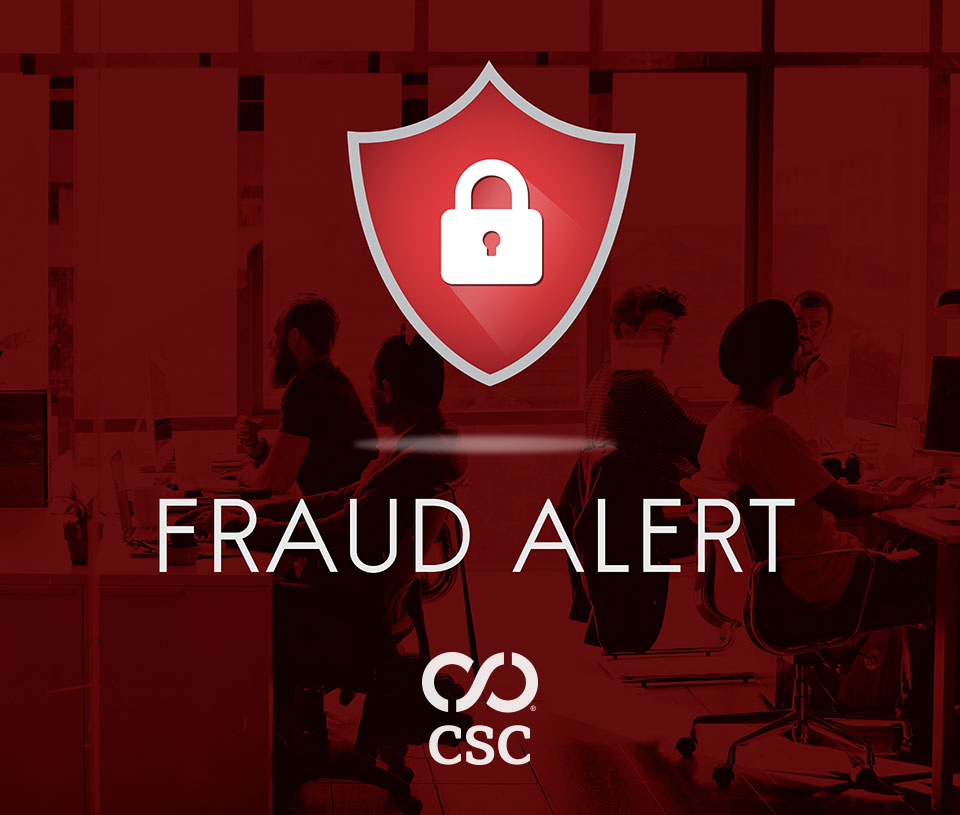
Brand Protection |
Sponsored by |

|




 There's more than a hint of theatrics in the draft PROTECT IP bill that has emerged as son-of-COICA, starting with the ungainly acronym of a name. Given its roots in the entertainment industry, that low drama comes as no surprise. Each section name is worse than the last: "Eliminating the Financial Incentive to Steal Intellectual Property Online" (Sec. 4) gives way to "Voluntary action for Taking Action Against Websites Stealing American Intellectual Property". more
There's more than a hint of theatrics in the draft PROTECT IP bill that has emerged as son-of-COICA, starting with the ungainly acronym of a name. Given its roots in the entertainment industry, that low drama comes as no surprise. Each section name is worse than the last: "Eliminating the Financial Incentive to Steal Intellectual Property Online" (Sec. 4) gives way to "Voluntary action for Taking Action Against Websites Stealing American Intellectual Property". more
The following is based on my experience and interpretation of the UDRP and the relevant laws of the United Kingdom and European Union. This is not legal advice but just my own experience and interpretation. How does a UK citizen create a non-commercial trademark.tld parody criticism website and avoid harassment from the trademark holder? Here are the steps... more
 Casey Lide and Thomas B. Magee of Keller & Heckman highlight an issue that anybody building fiber on utility poles should be aware of. A recent article on their website notes that in some cases, an easement obtained for using private land to bring electric service might not automatically allow an easement for bringing fiber. more
Casey Lide and Thomas B. Magee of Keller & Heckman highlight an issue that anybody building fiber on utility poles should be aware of. A recent article on their website notes that in some cases, an easement obtained for using private land to bring electric service might not automatically allow an easement for bringing fiber. more
 Domain names may be confusingly similar to trademarks or even identical or but not infringing. This is particularly true of trademarks acquired later than the allegedly infringing domain names ArcBest Corporation v. Domains By Proxy, LLC, Registration Private / Vernon Troupe, D2016-2381 (WIPO January 13, 2017) (<arcbest.com>, in which "ark" is a contraction of "Arkansas"), but it can also apply to marks composed of common element that predate domain name registration... more
Domain names may be confusingly similar to trademarks or even identical or but not infringing. This is particularly true of trademarks acquired later than the allegedly infringing domain names ArcBest Corporation v. Domains By Proxy, LLC, Registration Private / Vernon Troupe, D2016-2381 (WIPO January 13, 2017) (<arcbest.com>, in which "ark" is a contraction of "Arkansas"), but it can also apply to marks composed of common element that predate domain name registration... more
 The risks of fraud and disinformation in the U.S. election process have been hiding in plain sight. CSC's new research finds that a large majority of web domains closely linked to the campaign websites for Joe Biden and Donald Trump lack basic domain security protocols and are prone to domain spoofing tactics. This makes them a potential target for hackers looking to spread disinformation ahead of the election, and criminals who want to take advantage of voter intentions... more
The risks of fraud and disinformation in the U.S. election process have been hiding in plain sight. CSC's new research finds that a large majority of web domains closely linked to the campaign websites for Joe Biden and Donald Trump lack basic domain security protocols and are prone to domain spoofing tactics. This makes them a potential target for hackers looking to spread disinformation ahead of the election, and criminals who want to take advantage of voter intentions... more
 We've seen alarmingly BIG increases in multiple abusive behaviors – like phishing, hacking and malware – that often leverage the domain name system (DNS) and privacy/proxy services. Cybercriminals capitalize on gaps in DNS security measures, and ICANN is holding the door open for them by failing to implement their privacy/proxy policy. If you are ever targeted, you are not alone. more
We've seen alarmingly BIG increases in multiple abusive behaviors – like phishing, hacking and malware – that often leverage the domain name system (DNS) and privacy/proxy services. Cybercriminals capitalize on gaps in DNS security measures, and ICANN is holding the door open for them by failing to implement their privacy/proxy policy. If you are ever targeted, you are not alone. more
 I stumbled upon a study conducted by Microsoft eons ago back in the paleolithic era of search; 2012... It is about how "premium domains" are perceived by the consumer when seeing them in the search results compared to a lower value "non-premium" domain. I like to use quotations sparingly, but I felt it was necessary because the varying opinions on premium v non-premium domains is a bridge I do not want to cross in this post. more
I stumbled upon a study conducted by Microsoft eons ago back in the paleolithic era of search; 2012... It is about how "premium domains" are perceived by the consumer when seeing them in the search results compared to a lower value "non-premium" domain. I like to use quotations sparingly, but I felt it was necessary because the varying opinions on premium v non-premium domains is a bridge I do not want to cross in this post. more
 The courts of the United Kingdom have set themselves outside the mainstream of Internet consensus policies on trademark/domain name disputes. A U.K. court decision regarding the UDRP reflects an unfortunate tendency to overlook one of the fundamental principles of the UDRP, namely the opportunity to seek independent resolution of a trademark/domain name dispute by court proceedings. more
The courts of the United Kingdom have set themselves outside the mainstream of Internet consensus policies on trademark/domain name disputes. A U.K. court decision regarding the UDRP reflects an unfortunate tendency to overlook one of the fundamental principles of the UDRP, namely the opportunity to seek independent resolution of a trademark/domain name dispute by court proceedings. more
 On March 9th, 2016, during its final open meeting at ICANN 55 in Marrakech, Morocco, the Generic Names Supporting Organization (GNSO) Council approved a motion that I proposed to adopt the Charter of the Policy Development Process (PDP) to Review all Rights Protections Mechanisms (RPMs) in all Generic Top-Level Domains. I serve on the Council as one of the two representatives of ICANN's Business Constituency, and my fellow Councilors have designated me to serve as the GNSO's Liaison to the Working Group (WG), and as its Interim Chair. more
On March 9th, 2016, during its final open meeting at ICANN 55 in Marrakech, Morocco, the Generic Names Supporting Organization (GNSO) Council approved a motion that I proposed to adopt the Charter of the Policy Development Process (PDP) to Review all Rights Protections Mechanisms (RPMs) in all Generic Top-Level Domains. I serve on the Council as one of the two representatives of ICANN's Business Constituency, and my fellow Councilors have designated me to serve as the GNSO's Liaison to the Working Group (WG), and as its Interim Chair. more
 Is there any act more primary than naming? It comes before all else and makes possible what follows. For the most part, names are drawn from cultural assets: collections of words, geographic locations, family names, etc. They can be valuable, which is why they are guarded, protected, and hoarded. The balancing of rights among those competing for names is a deliberate feature of the Uniform Domain Name Dispute Resolution Policy (UDRP). more
Is there any act more primary than naming? It comes before all else and makes possible what follows. For the most part, names are drawn from cultural assets: collections of words, geographic locations, family names, etc. They can be valuable, which is why they are guarded, protected, and hoarded. The balancing of rights among those competing for names is a deliberate feature of the Uniform Domain Name Dispute Resolution Policy (UDRP). more
 Just as we started the new year, the U.S. Department of Homeland Security's Cybersecurity and Infrastructure Security Agency's (CISA) issued an alert. On January 6, 2020 , they warned of domain name system (DNS) hijacking and other cyber threats that may be used by nation-state threat actors to disrupt business activity and take control of vital internet assets. A familiar refrain heard in 2019 now repeating in 2020. more
Just as we started the new year, the U.S. Department of Homeland Security's Cybersecurity and Infrastructure Security Agency's (CISA) issued an alert. On January 6, 2020 , they warned of domain name system (DNS) hijacking and other cyber threats that may be used by nation-state threat actors to disrupt business activity and take control of vital internet assets. A familiar refrain heard in 2019 now repeating in 2020. more
 As a longtime member of ICANN's Intellectual Property Constituency (IPC), I'm impressed by the important work that this group does on behalf of trademark owners worldwide (as I've written before). While some die-hard IPC members spend countless (and, often, thankless) hours working virtually and in-person (at ICANN's global meetings) for the constituency, I find it very educational and worthwhile to participate on an ad-hoc basis. more
As a longtime member of ICANN's Intellectual Property Constituency (IPC), I'm impressed by the important work that this group does on behalf of trademark owners worldwide (as I've written before). While some die-hard IPC members spend countless (and, often, thankless) hours working virtually and in-person (at ICANN's global meetings) for the constituency, I find it very educational and worthwhile to participate on an ad-hoc basis. more
 There have been many news stories lately about ebook readers. The New York Times said that they were prominently featured at the Consumer Electronics Show. Amazon is pushing its Kindle; Barnes and Noble has its Nook. There are many other aspirants, either on the market now or waiting in the wings. For now, though, I'm sitting on the sidelines. more
There have been many news stories lately about ebook readers. The New York Times said that they were prominently featured at the Consumer Electronics Show. Amazon is pushing its Kindle; Barnes and Noble has its Nook. There are many other aspirants, either on the market now or waiting in the wings. For now, though, I'm sitting on the sidelines. more
 Back when I started working in this industry in 2001, ICANN was small, the industry was tight, and things moved slowly as interest groups negotiated a balance amongst the impacts of change. Change often meant added overhead and, at the very least, a one-time cost effort to implement on the commercial side. Registries and registrars preferred to be hands-off when it came to how their domains were being used. But e-crime became big business during the 2000s. more
Back when I started working in this industry in 2001, ICANN was small, the industry was tight, and things moved slowly as interest groups negotiated a balance amongst the impacts of change. Change often meant added overhead and, at the very least, a one-time cost effort to implement on the commercial side. Registries and registrars preferred to be hands-off when it came to how their domains were being used. But e-crime became big business during the 2000s. more
 In 2014, computer scientist Gavin Wood coined the term "Web 3.0." The phrase, which has now been shortened to "Web3", refers to the third generation of the internet that's designed to be truly decentralised and free from a central authority. Web3 has the potential to add real-world value for businesses by creating additional avenues to reach consumers. However, owing to its less regulated nature, brands also have the potential to be taken advantage of both by users and by the providers in the space. more
In 2014, computer scientist Gavin Wood coined the term "Web 3.0." The phrase, which has now been shortened to "Web3", refers to the third generation of the internet that's designed to be truly decentralised and free from a central authority. Web3 has the potential to add real-world value for businesses by creating additional avenues to reach consumers. However, owing to its less regulated nature, brands also have the potential to be taken advantage of both by users and by the providers in the space. more